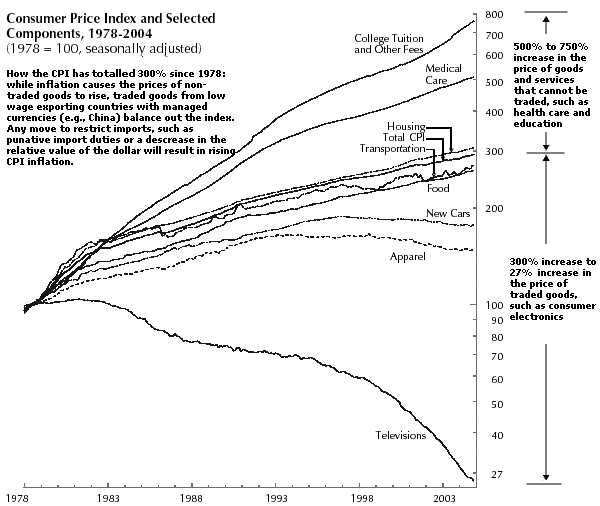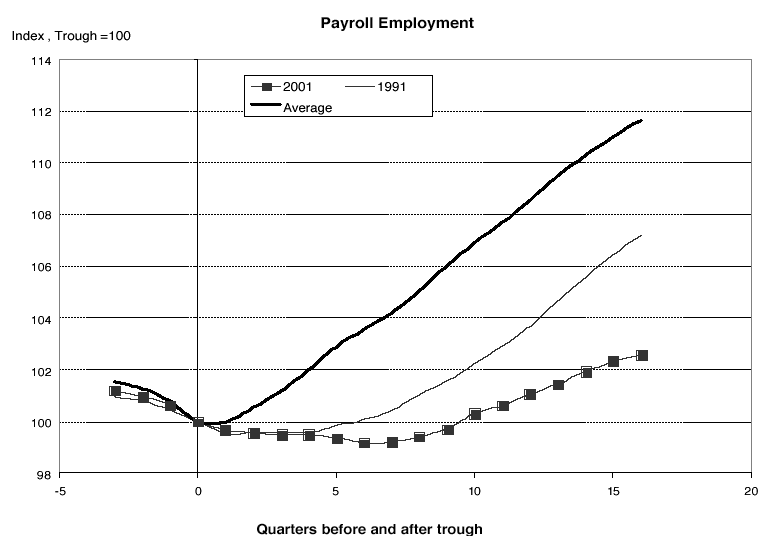Re: fun with numbers - wage "inflation"?
And here I'd thought you'd seen everything ...
Since you thought that was interesting, here's one more keying off the same idea. It's simply stock prices normalized for GDP. Note here we are taking the currency unit out of the equation completely - we are expressing stock prices in GDP units.
(The straight line is just the average level.)

Originally posted by bart
Since you thought that was interesting, here's one more keying off the same idea. It's simply stock prices normalized for GDP. Note here we are taking the currency unit out of the equation completely - we are expressing stock prices in GDP units.
(The straight line is just the average level.)


 )
)




Comment